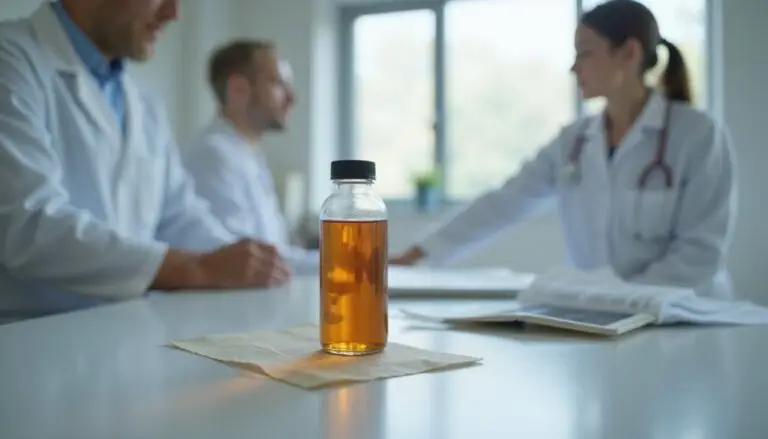Recovery from addiction unfolds through five distinct stages that you’ll progress through on your recuperation trek. You’ll start in precontemplation, where denial feels strong, then move into contemplation as you begin questioning your substance use. During preparation, you’ll build your recovery foundation, followed by taking decisive action through treatment. Ultimately, you’ll reach maintenance, where you’ll sustain your sobriety through ongoing support. Understanding each stage’s unique challenges and opportunities will strengthen your path to lasting recovery.
Understanding the Precontemplation Phase: Denial and Resistance
While many people struggling with addiction aren’t ready to acknowledge their situation, the precontemplation phase represents a critical starting point in the recovery expedition. During this stage, personal perception biases often lead you to minimize the severity of substance use while maximizing its perceived benefits. You may focus on justifying addiction behaviors as a coping mechanism to avoid facing reality. Denial and unawareness can heavily influence this early stage of change. Motivational interviewing is a key therapeutic technique used by counselors to build trust during this phase.
You might find yourself dismissing concerns from loved ones, believing you’re in control despite mounting evidence otherwise. These reactions stem from emotional decision making triggers that can cloud your judgment and reinforce denial patterns. You’ll likely experience internal conflict between the temporary pleasure of substance use and its growing negative impact. Rather than viewing this resistance as failure, it’s important to recognize it as a natural part of the process. Small steps in the direction of self-awareness, even amid uncertainty, can gradually open the door to change.
Breaking Through to Contemplation: Seeds of Change
As you begin recognizing addiction’s impact on your life, the contemplation phase marks a crucial turning point in your recovery path. During this stage, you’ll experience ambivalence resolution as you weigh the costs against benefits of your addictive behavior. Your contemplation reinforcement grows through information-seeking and investigating treatment options. The process involves exploring personal motivations that can drive meaningful and lasting change.
Taking the first step to recognize addiction opens the door to healing, as you begin weighing your choices and exploring paths forward.
Most people spend significant time weighing pros and cons before committing to any major lifestyle changes.
- You’ll start acknowledging physical and emotional consequences of addiction
- You may feel conflicted between maintaining familiar patterns and embracing change
- You’ll actively seek knowledge through books, podcasts, and recovery communities
- You’ll examine diverse treatment approaches that align with your needs
- You’ll find strength in supportive relationships that encourage your progression
Taking Steps in Preparation: Building Recovery Foundation
Once you’ve moved beyond contemplation into preparation, you’ll begin taking concrete steps to build a strong foundation for recovery. Your motivation may fluctuate during this stage, but that’s normal as you test your commitment through short-term sobriety attempts and preliminary lifestyle changes. Setting small achievable goals during preparation helps build confidence and momentum for lasting change.
You’ll need to focus on developing coping mechanisms while addressing both emotional and physical readiness. This includes managing triggers, improving sleep habits, and adjusting your nutrition. Start building lifestyle stability by creating practical goals, arranging financial matters, and communicating with employers as needed. Having a structured schedule helps because it establishes a new normal during this vulnerable time in your recovery journey. Don’t forget to establish a strong support network – connect with counselors and peers who understand your path. While setbacks might occur, remember they’re part of the process. Your dedication to making these preparations shows you’re moving in the right direction.
Embracing Action: Commitment to Lasting Change
When you enter the action stage of recovery, your commitment to lasting change becomes the driving force behind every decision. Your success depends heavily on engaging with structured support programs and implementing proven relapse prevention strategies. With approximately three out of four people eventually achieving recovery from addiction, taking decisive action is crucial. Despite the challenges, research shows that most individuals who receive and remain in treatment stop misusing substances.
- Commit to completing your treatment program those who finish have a 68% higher chance of maintaining sobriety
- Participate in both therapy and medication management if prescribed, as this combined approach yields better outcomes
- Build a strong support network through family, friends, and peer groups like 12-Step programs
- Engage in regular monitoring and accountability check-ins to stay on track
- Plan for long-term recovery by developing personalized coping skills and relapse prevention techniques
Achieving Maintenance: Sustaining Long-Term Recovery
The maintenance stage represents a powerful milestone in your recovery path, building upon the momentum of your active commitment to change. Success during this phase depends on your dedication to continued self-reflection and proactive strategies that safeguard your sobriety.
You’ll need to stay vigilant through structured support systems, including regular therapy sessions, peer group meetings, and progress monitoring metrics that track your passage. Establishing healthy routines through exercise, proper nutrition, and consistent sleep patterns helps prevent complacency. It is crucial to nurture your support network while developing new hobbies and interests that fill the void left by substance use.
Frequently Asked Questions
How Do Genetics Influence Addiction Recovery Success Rates?
Your genetic predisposition tremendously impacts your recovery success, but it’s not your destiny. Your genes can influence how well you’ll respond to specific medications and treatments, with personalized approaches improving recovery rates by about 20%. While genetic factors affect your body’s response to substances, they work alongside environmental factors. Understanding your genetic profile helps healthcare providers tailor treatments specifically for you, optimizing your chances of successful recovery.
What Role Does Childhood Trauma Play in Addiction Recovery Outcomes?
If you’ve experienced childhood trauma, it can profoundly impact your recovery path through developmental disruptions and altered attachment patterns. Your early experiences may have led to changes in how your brain processes stress and emotions, making recovery more intricate. But don’t lose hope with trauma-informed treatment approaches, you can heal both your trauma and addiction. Comprehending this connection is vital, and you’re not alone in traversing these intertwined challenges.
Can Alternative Therapies Like Acupuncture Help During Different Recovery Stages?
Yes, acupuncture can be a valuable tool throughout your restoration odyssey. In early stages, it’ll help manage withdrawal symptoms and provide nutritional support by improving your digestion and appetite. As you advance, you’ll find it helpful for stress reduction and emotional equilibrium. When combined with mindfulness practices, acupuncture can augment your comprehensive well-being, reduce cravings, and support long-term recovery by addressing both physical and emotional aspects of healing.
How Does Brain Chemistry Change Throughout the Recovery Process?
During recovery, you’ll experience significant neurotransmitter fluctuations as your brain heals. Initially, you might feel intense mood swings while your dopamine levels stabilize. As you maintain sobriety, neural pathway rehabilitation begins your brain creates healthier connections and repairs damaged circuits. You’ll notice improvements in decision-making, emotional control, and stress response. Remember, this healing process takes time, but your brain’s remarkable plasticity supports positive change throughout recovery.
What Percentage of People Maintain Sobriety After Completing Each Stage?
You’ll find that sobriety rates vary considerably through recovery stages. While less than 20% maintain continuous sobriety in the initial year, your chances improve with relapse prevention strategies and strong aftercare programs. Research shows that 57% stay sober with assertive continuing care, and long-term recovery rates reach 75% when you’re actively engaged in treatment. Remember, even if you experience setbacks, you’re among the 22.3 million Americans who can achieve lasting recovery.





